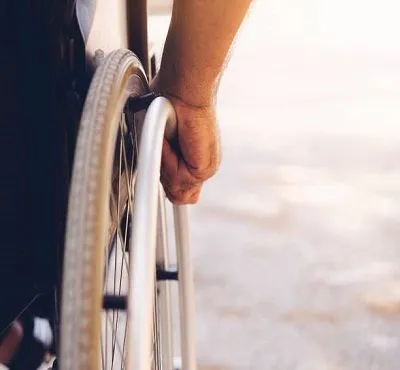We do not request reimbursement of costs
(such as repayment for obtaining medical records)
from veterans nor from people who suffer from multiple sclerosis.
- Call today for a free evaluation
- 1-888-774-7243
Disability for Neurocardiogenic Syncope
Neurocardiogenic syncope is a medical condition that causes a momentary loss of consciousness due to a drop in arterial blood pressure that is rapidly followed by an abnormally slow heart rate. While the disorder requires no treatment and is usually harmless, it is possible to injure yourself if you fall during an episode. The condition is also referred to as neutrally mediated syncope and vasovagal syncope.
What is Neurocardiogenic Syncope?
Neurocardiogenic syncope is caused by a malfunction in the region of the nervous system that controls your heart rate and blood pressure. The malfunction typically happens as a response to a trigger like the sight of blood, heat exposure or standing for extended periods. It can also be triggered by straining during a bowel movement. In addition to a sudden drop of your blood pressure and heart rate, rapidly dilating vessels allow blood to pool in your legs. The reduced flow of blood and oxygen to the brain results in a brief loss of consciousness. Before fainting, you may experience symptoms like lightheadedness, yawning and nausea as well as tunnel or blurred vision. While you are unconscious, those providing assistance may notice a slow, weak pulse, dilated pupils and jerky abnormal movements. Recovery from neutrally mediated syncope usually begins to occur in under a minute as blood is restored to the brain. If you attempt to stand up too quickly after fainting, you can trigger another episode.
Your doctor will conduct a series of tests to rule out a heart condition. After eliminating cardiovascular disease as a cause for your symptoms, you may undergo a tilt table test. You will lie on the table, which will be tilted to various angles while your heart rate and blood pressure are checked. Once you have been diagnosed with neurocardiogenic syncope, your doctor will identify triggers to help you incorporate lifestyle changes that reduce the risk of future episodes. If you experience neutrally mediated syncope episodes often enough to affect your quality of life, your physician may prescribe compression stockings and medications or therapies like leg exercises. In rare cases, your doctor may recommend the insertion of a pacemaker to control your heart rate.
Getting Disability for Neurocardiogenic Syncope
 A fainting episode can be caused by fatigue, intense exercise and hypoglycemia. These rarely occurring, short-lived bouts of unconsciousness are different from the recurring episodes associated with neurocardiogenic syncope. Not everyone suffering from syncope will qualify for benefits. The frequency of the condition must be severe enough that it prevents you from engaging in meaningful employment and earning an independent living. Fainting is covered under Section 4.00 Cardiovascular System and Section 11.00 Neurological System in the Social Security Administration (SSA) Blue Book. To qualify for disability benefits, you must have experienced fainting spells for at least two years preceding your application. If you do not qualify for full benefits, the SSA may conduct a residual functional capacity assessment to determine your eligibility for a medical-vocational allowance.
A fainting episode can be caused by fatigue, intense exercise and hypoglycemia. These rarely occurring, short-lived bouts of unconsciousness are different from the recurring episodes associated with neurocardiogenic syncope. Not everyone suffering from syncope will qualify for benefits. The frequency of the condition must be severe enough that it prevents you from engaging in meaningful employment and earning an independent living. Fainting is covered under Section 4.00 Cardiovascular System and Section 11.00 Neurological System in the Social Security Administration (SSA) Blue Book. To qualify for disability benefits, you must have experienced fainting spells for at least two years preceding your application. If you do not qualify for full benefits, the SSA may conduct a residual functional capacity assessment to determine your eligibility for a medical-vocational allowance.
Getting Help from an Attorney
Filing for SSA disability benefits for neurocardiogenic syncope can be a difficult process especially if your condition is triggered by standing for long periods. The nature of disease requires extensive documentation of medical tests, physical therapy outcomes and the resulting diagnosis by a physician. The medical reports should include the frequency and severity of the fainting spells as well as the time required for you to recover from the episodes. As a result, it is important that you retain the services of an experienced disability lawyers in miami to ensure that your claim is managed correctly. If you have already been denied, we can review your case and handle any possible appeal. Pursuing a SSA disability claim can be a complicated process. Our knowledgeable team will work diligently to get the benefits that you deserve.
For a Free Evaluation
Monday : 9am–5pm
Tuesday : 9am–5pm
Wednesday : 9am–5pm
Thursday : 9am–5pm
Friday : 9am–5pm
Saturday : Closed
Sunday :Closed

